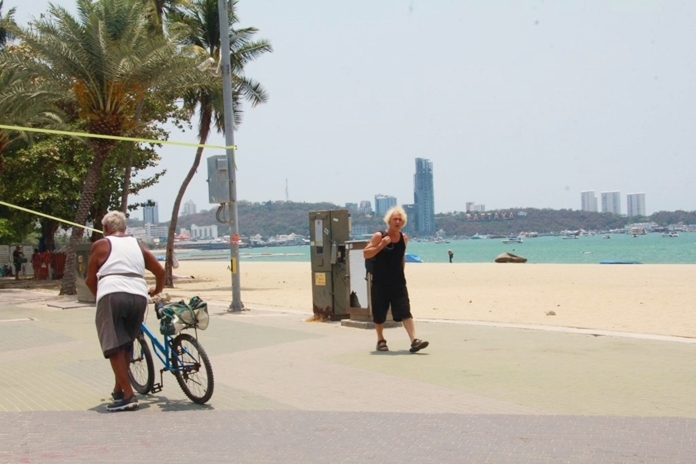
Foreign retirees, the bulk of the 4,000 or so expats still left in the greater Pattaya area, have experienced rather a battering in the last couple of years. First off, they were told that they now needed to have comprehensive medical insurance, followed by a correction that only the very few with an O/A visa issued by a Thai consulate would be caught in the medical net. In fact, most retirees have an O visa with annual extensions of stay stamped by the Thai immigration bureau. They are currently safe.
The retirees were then clobbered by several embassies, including the British and the American, which refused to issue a standard letter confirming that the applicant had an annual foreign income. Diplomats argued that their nationals might be telling lies, a terrifying scenario indeed, although others pointed to the general backsliding in the number and quality of embassy services on offer these days.
Next, Thai immigration authorities nationally issued new guidelines for proving your overseas income or retaining cash in a Thai bank with the initial requirement of 800,000 baht or equivalent. But there was a hint of ambiguity here and there in the official translation and local immigration offices began issuing their own detailed procedures. So, in one office, you might need Transferwise paperwork to prove the cash did originate abroad, but a neighboring office might not bother. There is probably a PhD to be written on all the nitty-gritty variations up and down the land which were – and continue to be – faithfully recorded on a daily basis by the irrepressible ThaiVisa.
Now there is a new reality. Those retirees currently remaining in Thailand are essentially prisoners without bars in their own chosen tropical paradise. In other words, if they leave the country for any reason, they cannot return by land, sea or air. All foreigners, no matter what their status, are banned from entry until June 30 at the earliest.
Earlier this month, government spokespersons began speculating about which groups of foreigners might be allowed in first. Perhaps there will be a trial run of Vietnamese or Chinese or even New Zealand tourists as they represent countries with a good track record of combatting the pesky virus. Maybe, other groups such as work permit holders or farang with Thai wives or even business executives might have a chance to catch a plane. No details have yet emerged, but the earlier assumption that Thai airports would see a free-for-all on July 1 is obviously bunkum.
Thus your typical retiree in Pattaya, enjoying the empty deckchairs on the beaches and the panic-driven discounts in the massage shops, is going to be stuck here for much longer than seemed probable just a few weeks ago. That is particularly true if his (or her) passport was issued by a country with a poor coronavirus track record which includes all Europeans, in the EU or out of it, the Americans, the Middle East, etc. Part of the new-normal in travel, about which we are admittedly and heartily sick of hearing, may turn out to be what nationality you are rather than where you have been. Not to mention the documents you might need in addition to your passport and visa.
Trying to guess when the Thai travel gates might swing open wide is a mug’s game rather like attempting to pinpoint the end of world war two just a month or so after it had started. All will depend on the trial runs of specified groups in coming months, the likelihood of an effective vaccine being developed internationally and the degree of risk of imported Covid-19 which the Thai authorities are prepared to take. Give Frank, a 72 year old Brit, the last word, “I don’t have a crystal ball but I know where I’ll be spending Christmas. Here!”
 |
 |
 |




